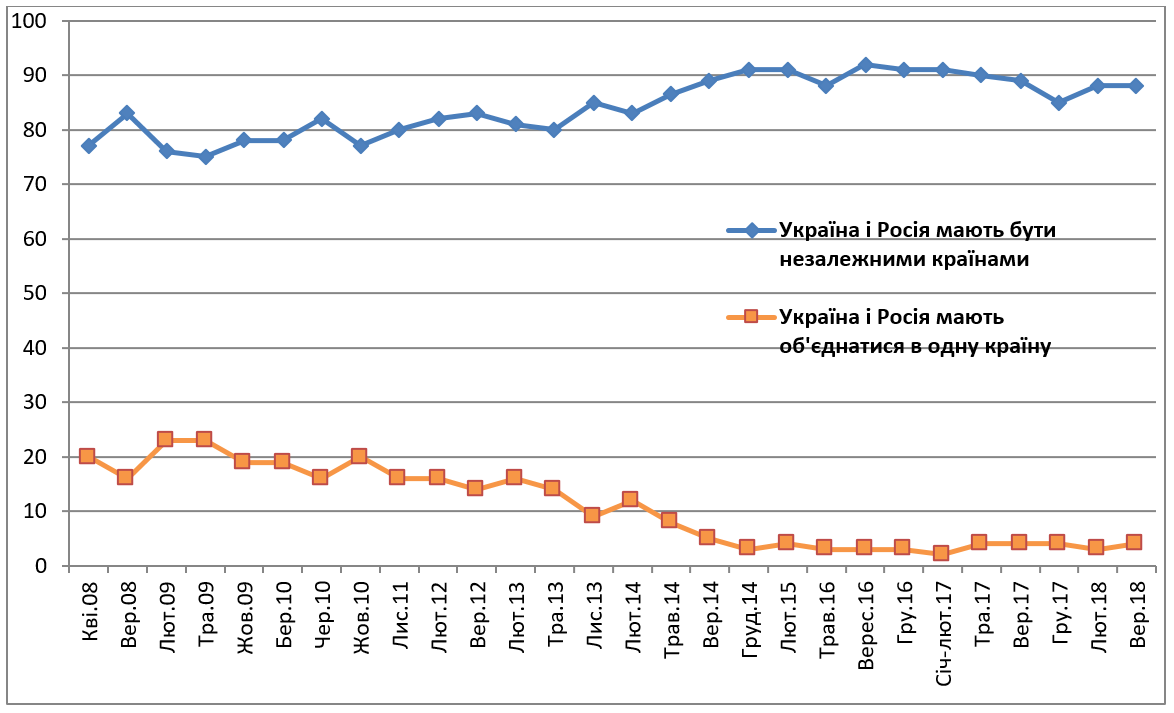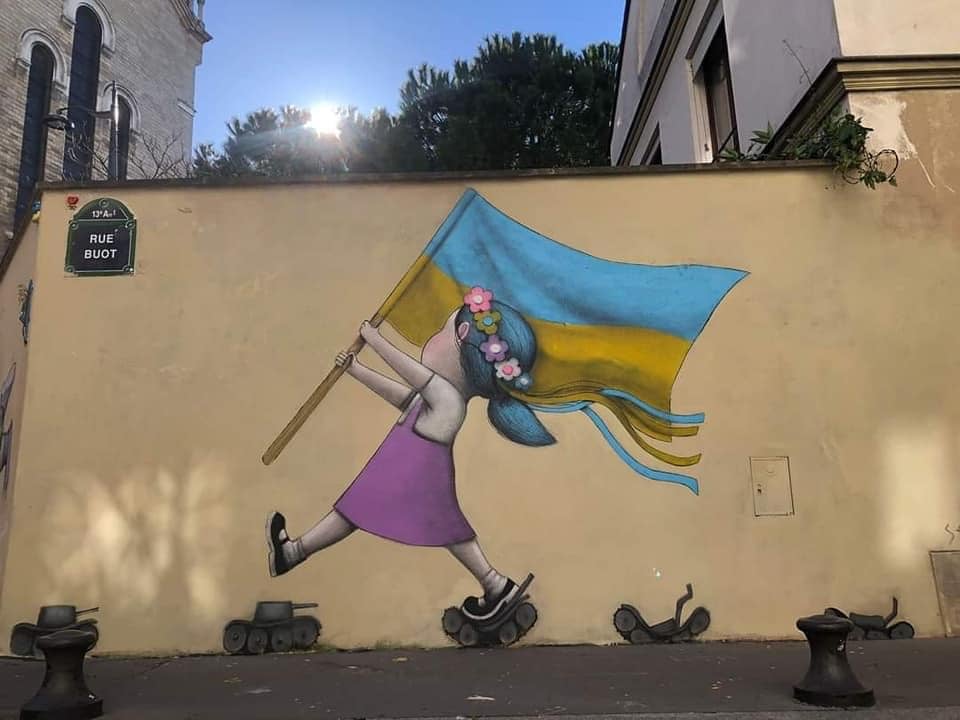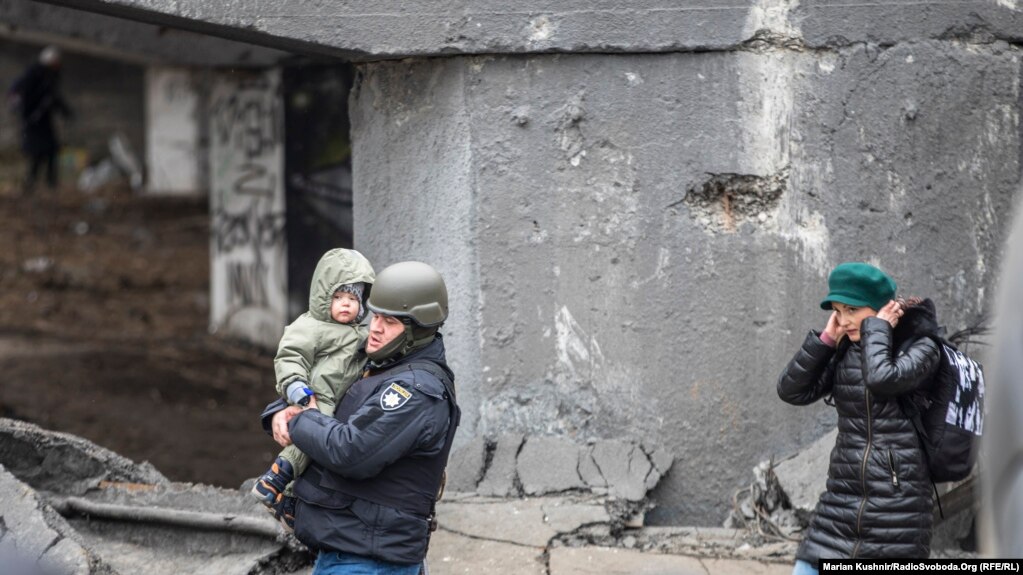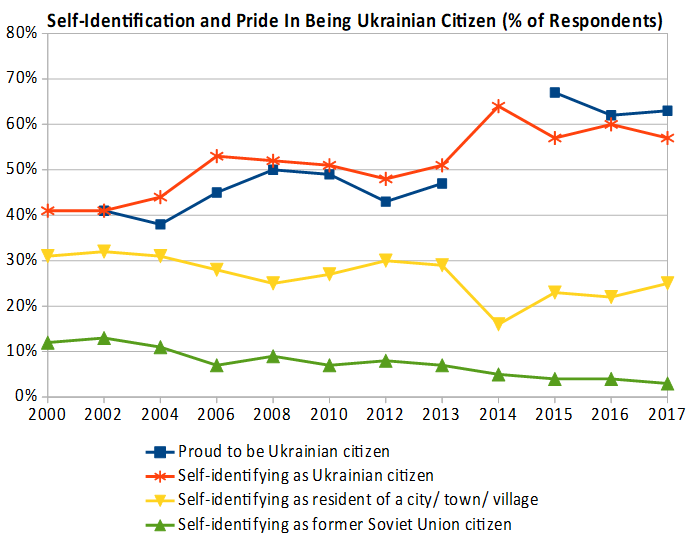The traditional 2020 sociological survey by Democratic Initiatives shows that 84.4% of Ukrainians would vote for Ukrainian independence on a referendum if it was held now. The survey has been conducted annually (since at least 2006) on the eve of Ukrainian Independence Day celebrated on 24 August.
During the 1991 referendum that was held on 1 December that year to confirm that Ukrainians support the declaration of Independence, 90.3% of respondents voted in support. Today, this support is nearly at the same level. After a moderate fall to about 70% in the late 1990s and 2000s due to the economic turmoil of the transition period, support for Independent Ukraine rose again after the Euromaidan Revolution.
At the same time, despite such absolute support for independence, there are significant regional, age, and political differences. For example, in western Ukraine, less than 1% oppose independence, while in eastern Ukraine the number approaches 30%.

Yet, Ukraine's 29th anniversary brings two other interesting insights. The first is that Ukrainian society breaks with Soviet cultural and political legacy. Only citizens aged 60 and over still pity the collapse of the Soviet Union and think that Ukraine and Russia should unite into one state.
Generally, younger people are more likely to support Ukrainian independence. The youth also feels nostalgia for the Soviet Union, but threefold less than pensioners. Only 15% of citizens below 29 think that the collapse of the Soviet Union was bad. Similarly dwindling is the idea that Ukraine and Russia should unite into a single state. In 2007, such proposals were supported by 1/5 of Ukrainians.

At the same time, while the younger generation is not beholden by Soviet nostalgia and declares their support for an independent Ukraine, youth and middle-aged people see fewer perspectives in Ukraine, more often consider emigration and are more likely to support the ideologically ambiguous and nationally indifferent Servant of the People party in all regions, rather than the clearly pro-Ukrainian European Solidarity or clearly pro-Russian Opposition Platform.
These implications can be drawn from the latest Democratic Initiatives Sociological Survey.

Thus, Ukrainian media space is preoccupied with three leading political parties: Servant of the People, Opposition Platform, and European Solidarity. After a landslide victory in 2019 elections, Zelenskyy's Servant of the People lost 1/3 of its supporters but is still the strongest party. 6 out of 10 its voters are younger than 40 and come from various regions. Opposition Platform is a pensioner party. 7 out of 10 its voters are older than 50. The party initiated such scandalous initiatives as cancellation of the law that supports the Ukrainian language in Ukraine. Finally, former president Poroshenko's European Solidarity is supported almost exclusively in western and central Ukraine, competing there with more leftist Servant of the People and Batkivshchyna but having no support in the east.
All this means that Ukraine's traditional politics of pro-Ukrainian and pro-Russian elites were suddenly outridden by TV and Instagram elites with a totally different language and culture supported mostly by the country's youth. At the same time, as a Detector Media analysis claims, Zelenskyy is an ideologist for people with a Soviet/post-Soviet mindset; therefore, it may be argued that Ukraine's Soviet nostalgia is alive and well in the form of a proliferating Soviet mindset.
Not a clearly-defined pro-Russian opposition as before, but indifference and fatigue from serious politics, supported by the information chaos and fake news from oligarch-controlled media is probably the main challenge for Ukraine on its 29th anniversary of Independence.





